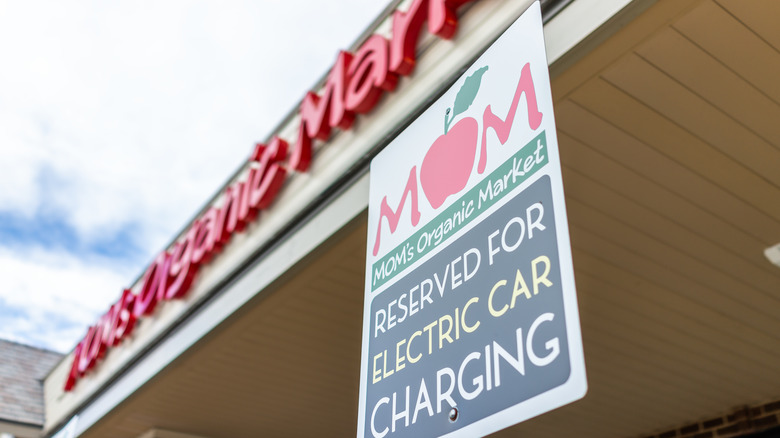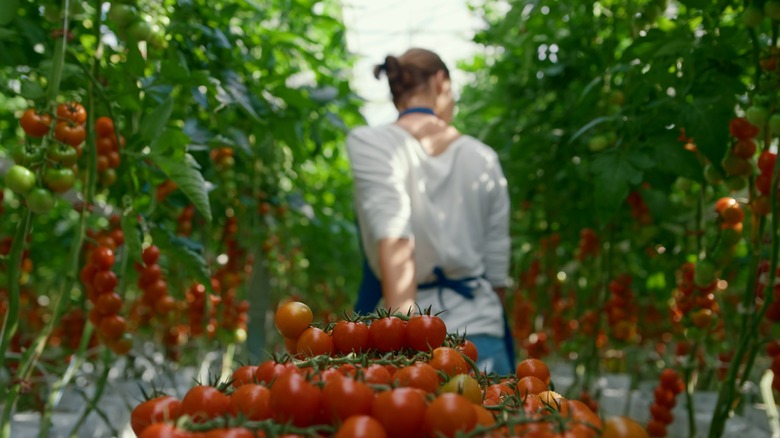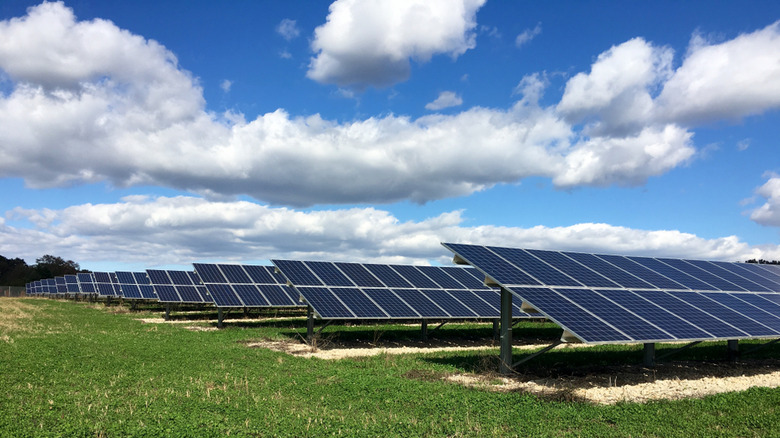How MOM's Organic Market Has Committed To Sustainability
The word sustainability gets knocked around quite a bit these days. From huge corporations to small family farms, there's an increasing awareness of how we grow and process food — for good reason. Food ultimately comes from Mother Earth, so why bite the hand that feeds us, right?
Grocery chains are hopping on the sustainability bandwagon, either in theory or reality, and a few deep-dive into their commitments. That includes MOM's Organic Market, which began when a 22-year-old named Scott Nash started peddling produce from his mom's garage, according to the company's storyline. More than 30 years later, the former home delivery and mail-order venture has blossomed into 22 retail grocery stores in five states and D.C., as of 2022.
Bloomberg Live calls it one of America's premier family-owned organic grocery stores. Nash, the original dreamer with a $100 investment, still runs the operation, a far cry from his early days dropping produce on doorsteps using his sister's station wagon. So now, after all these years, how does MOM's really stand as a pioneer in sustainability efforts? A big hint comes from the company's official Our Purpose statement: To protect and restore the environment.
Here's a look at how that plays out in reality.
Sustainability in real life
Forget the concept of sustainability for a minute and peruse the constantly unfurling list of real-life investments in sustainability by the solidly planted MOM's Organic Market chain. For starters, the store's name itself states the obvious: It carries food that adheres to established USDA organic growing, handling, and labeling practices established by the National Organic Program. That covers a lot of sustainability ground already, with supplier commitments to things such as ecological balance, biodiversity, soil-quality control, and conservation of wetlands, forests, and wildlife. Food suppliers also avoid harmful environmental practices, including synthetic fertilizers and irradiation, as noted in an overview of organic regulations by the USDA.
But sustainability goes much further than organic certifications and food production principles. There's a bigger picture not always evident to everyday shoppers. The multi-pronged sustainability dedication of MOM's Organic Markets incorporates the implantation and expansion of in-store, community, and global projects.
Sustainability with a broad reach
At MOM's Organic Market, they paint the concept of sustainability with broad strokes, according to the company's Purpose plan. The markets commit to things such as electric car charging stations at almost all stores, LED lighting, skylights, and motion sensor lights to reduce energy consumption, and carbon offsetting of customers' gas mileage. Plastic reduction policies mean no plastic bags or bottled still water, in addition to bulk-buying options to cut down on plastic packaging purchases.
Store structures use sustainable building materials, zero-VOC paints, low-electricity refrigeration systems, and heat recovery to power hot-water needs. The company also sponsors annual denim recycling drives to provide in-store scrapped-denim insulation. Solar rooftop conversions are in process, along with local off-site community solar projects and purchases of Wind Power Renewable Energy Credits (RECs).
In a wider context, MOM's invests in reforesting land to reduce carbon dioxide emissions, partners with at least 65 environmental groups, and supports numerous habitat restoration projects, per the company's 2021 Sustainability Report. They advocate for and invest in everything from watershed cleanup to oyster recovery projects, climate change campaigns, and food and environmental justice advocacy.
If that's not enough, MOM's Organic Market even supports local organic farms that are too small to be MOM's suppliers. At no profit for the company, they volunteer their stores as Community Supported Agriculture (CSA) pick-up locations for organically grown food boxes from local farmers.


